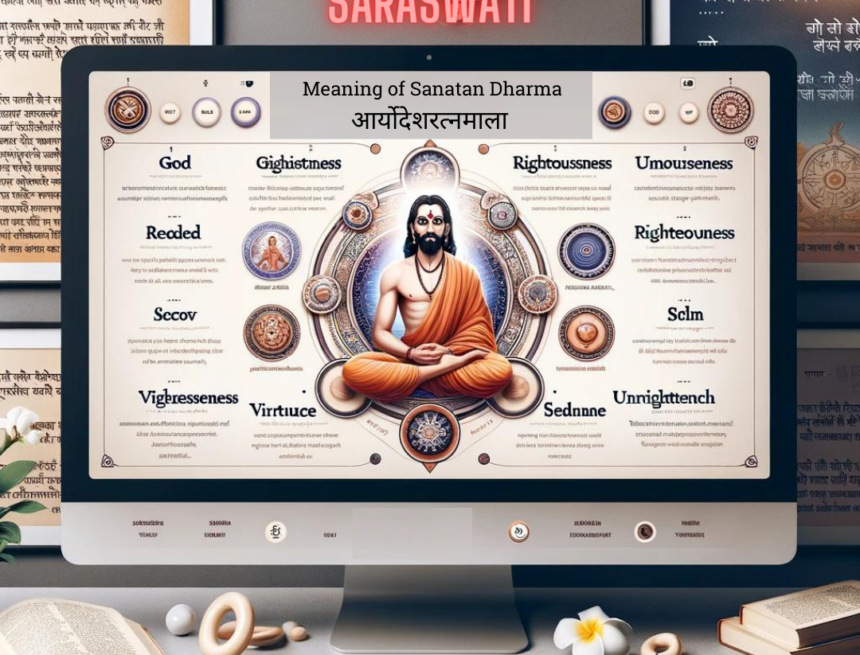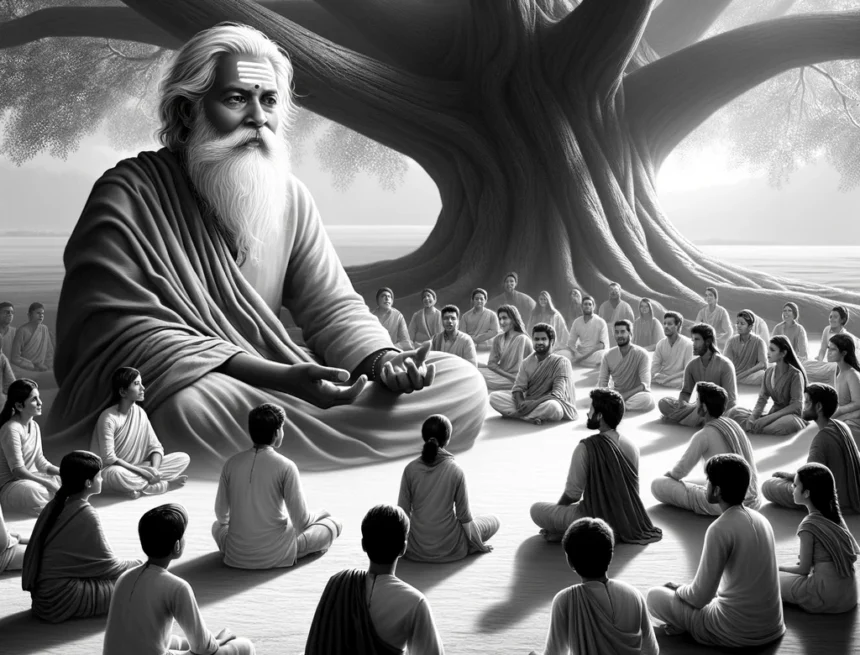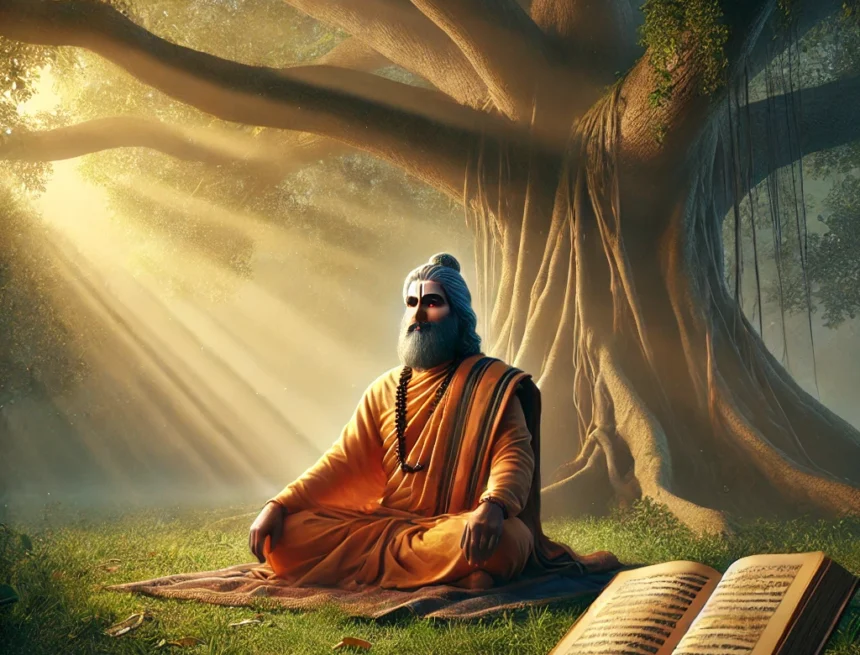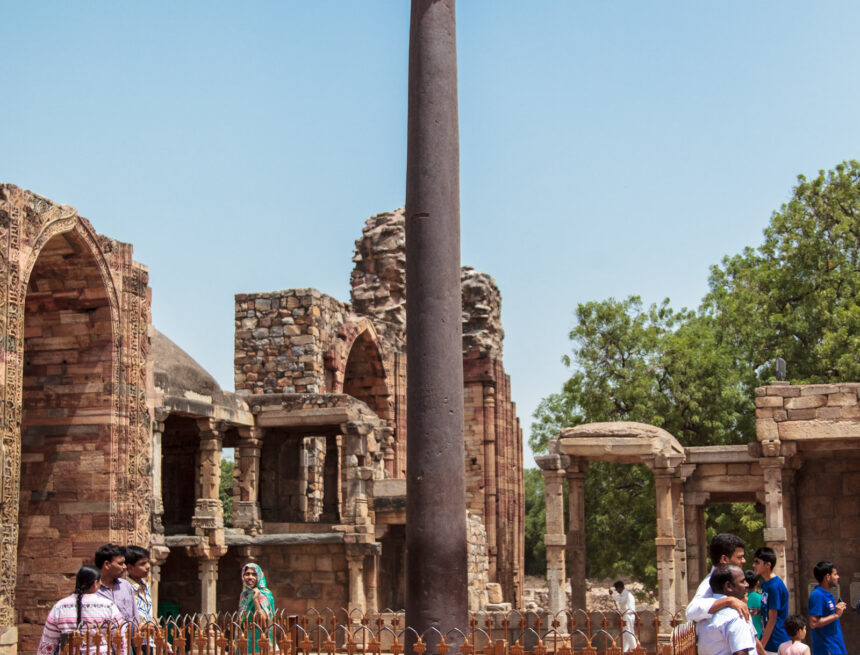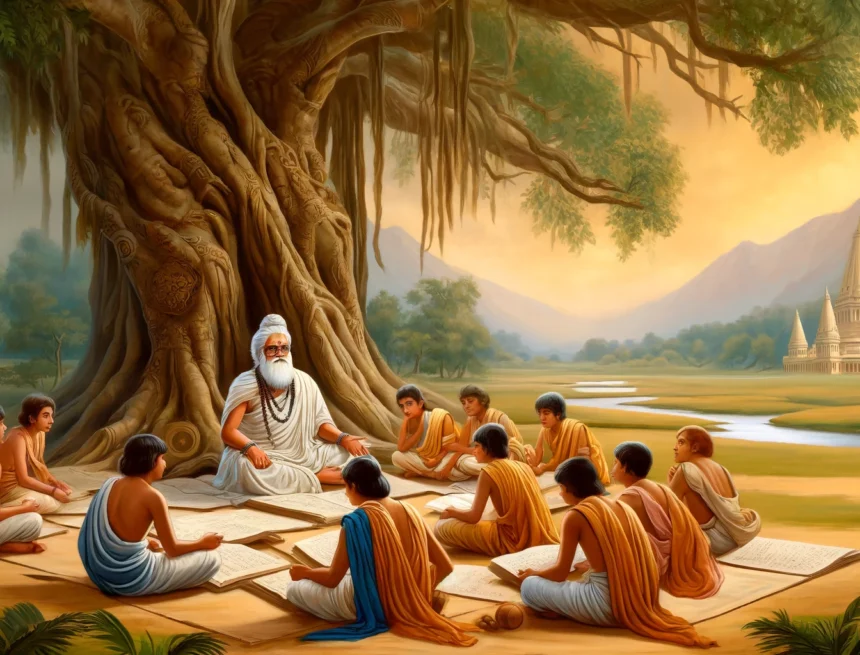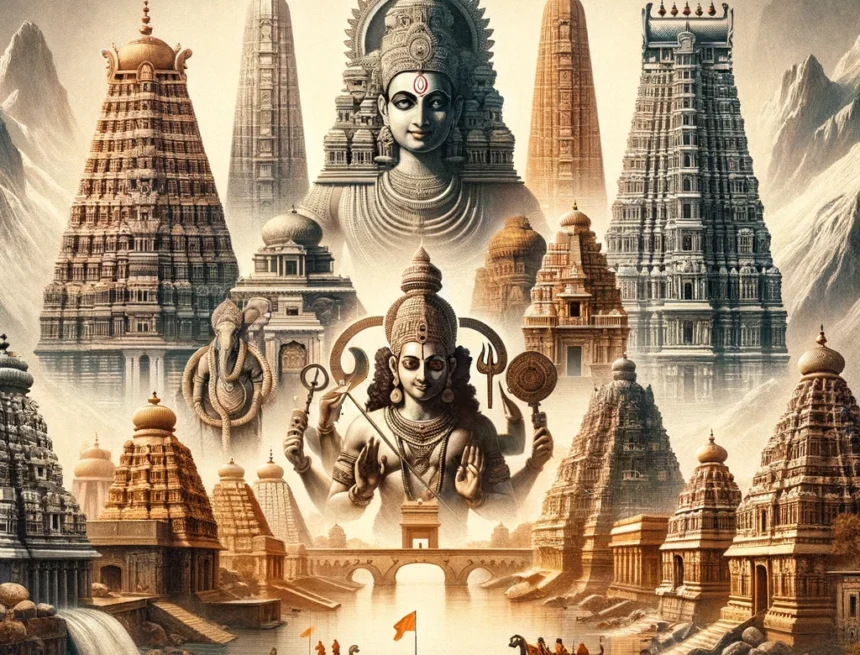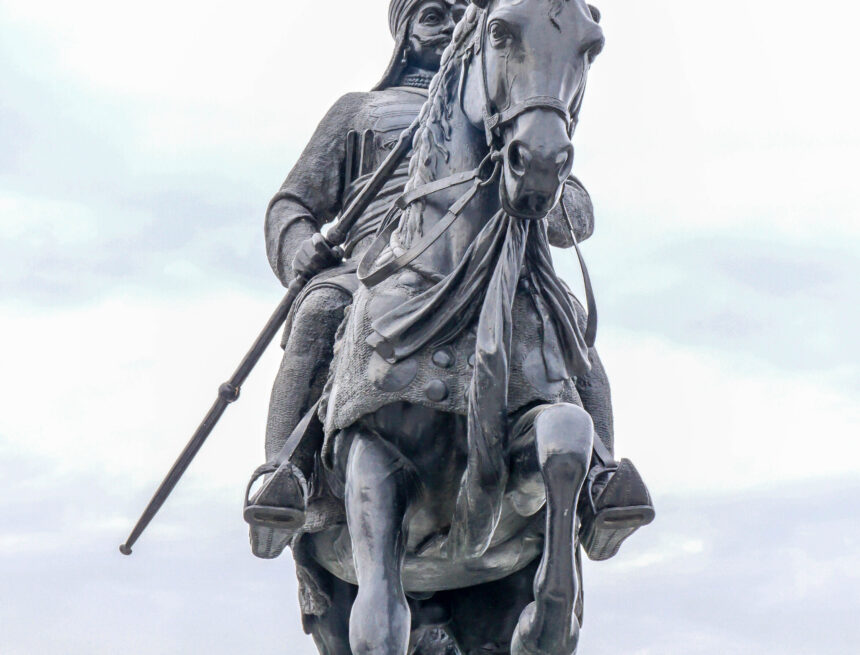Continuing our weekly thematic exploration at HinduInfoPedia.org, this blog post, scheduled for May 22, 2024, delves into the meaning of Sanatan Dharma, as elucidated by Maharishi Dayanand Saraswati, a revered scholar and founder of the Arya Samaj. His seminal work, "आर्योदेशरत्नमाला," offers 100 essential definitions that form the core of Vedic knowledge, shaping our understanding of Hindu philosophy and its practical applications in daily life.
Sanatan Dharma, unlike more doctrinally rigid religions like Christianity or Islam, presents a unique framework that accommodates diverse beliefs, including atheism. This flexibility allows for various systems of salvation, reflecting the inclusivity fundamental to Hindu thought. Followers who engage in idol worship and those who do not are equally recognized as Hindus.
Arya Samaj, initiated by Maharishi Dayanand, advocates for a form of worship that eschews idolatry, aligning with the tenets of Vedic scripture. This blog series explores these nuances, with special commentary by the author on definitions that particularly reflect the Arya Samaj’s perspectives. Through this exploration, we aim to deepen the reader's appreciation for the broad and inclusive nature of Hinduism and the specific interpretations of Maharishi Dayanand Saraswati.


